OUR MARKS: STORM Association
31.10.2023
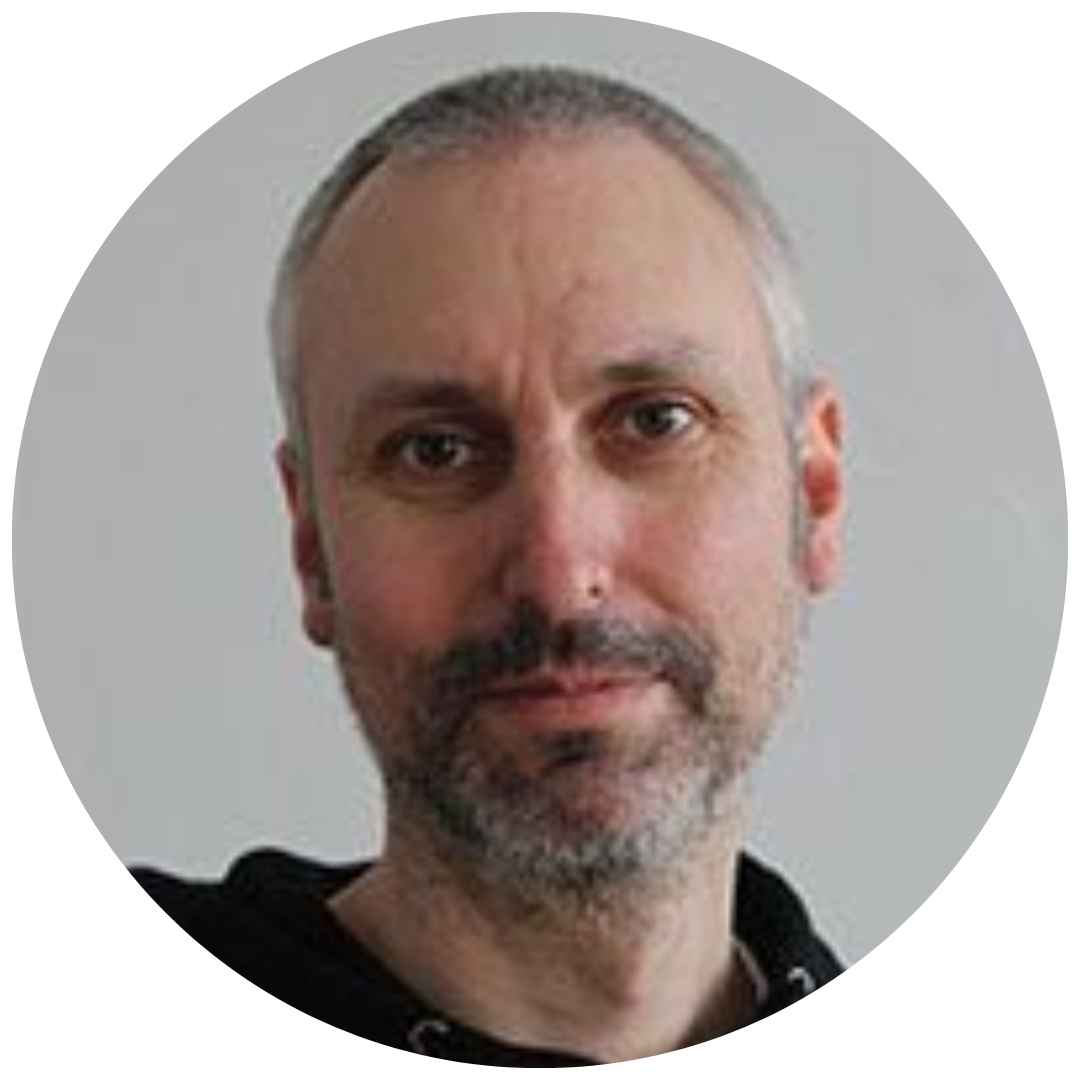
Mgr. Pavol Vančo (Coordinator of the programme KROK VPRED in Trnava, coordinator of the contact centre ZÓNA in Sereď, social worker)
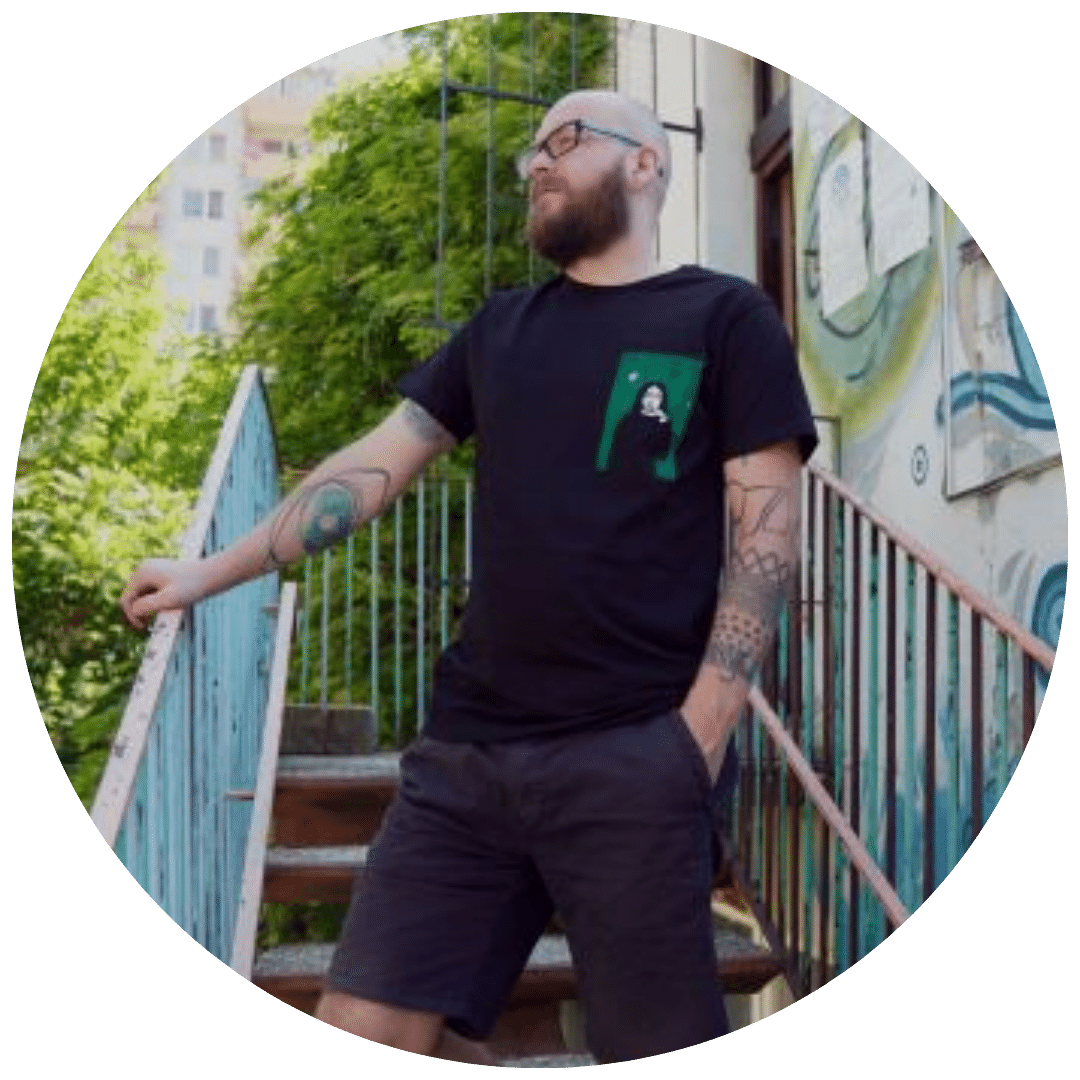
Mgr. Pavol Ščasný (statutory representative of the Association STORM)
How do you perceive the implementation of the project over time?
The 3P Project – work, assistance, support, which we implemented with the support of ACF – Slovakia from 2019 to 2021, is seen as a meaningful and important project after some time has passed. The project provides various opportunities to the people we work with at the STORM Association – injection drug users and individuals involved in street sex work.
One of the most prominent opportunities perceived by the community is the chance to work legally. The income people earn through such work can be used to address their social situation or, to a limited extent, as they see fit according to their current needs.
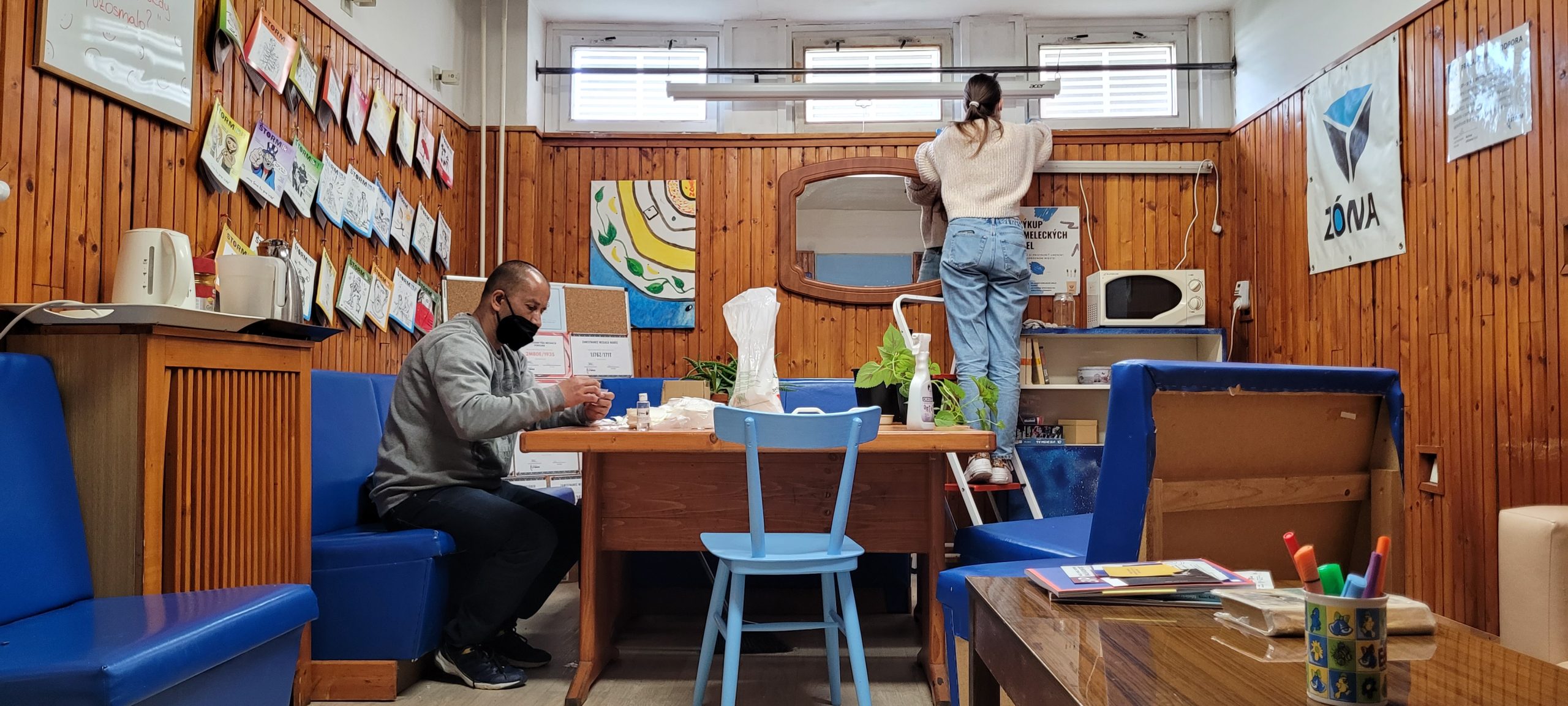
Source: STORM Association, client’s work at the Zóna Centre.
The second opportunity is the chance to undergo a job interview. During the mock job interview, which we simulate when someone expresses interest in participating in the project, we take each person through the actual process they will face in a real job interview. People have the opportunity to reflect on their abilities and qualities, as well as where they see themselves in a few years, and more. All of this takes place in a safe environment within the contact center, with staff they fully trust.
Another opportunity is the chance to work based on an individually developed work plan or simply at a time that suits the individual “here and now,” without a fixed work schedule agreement.
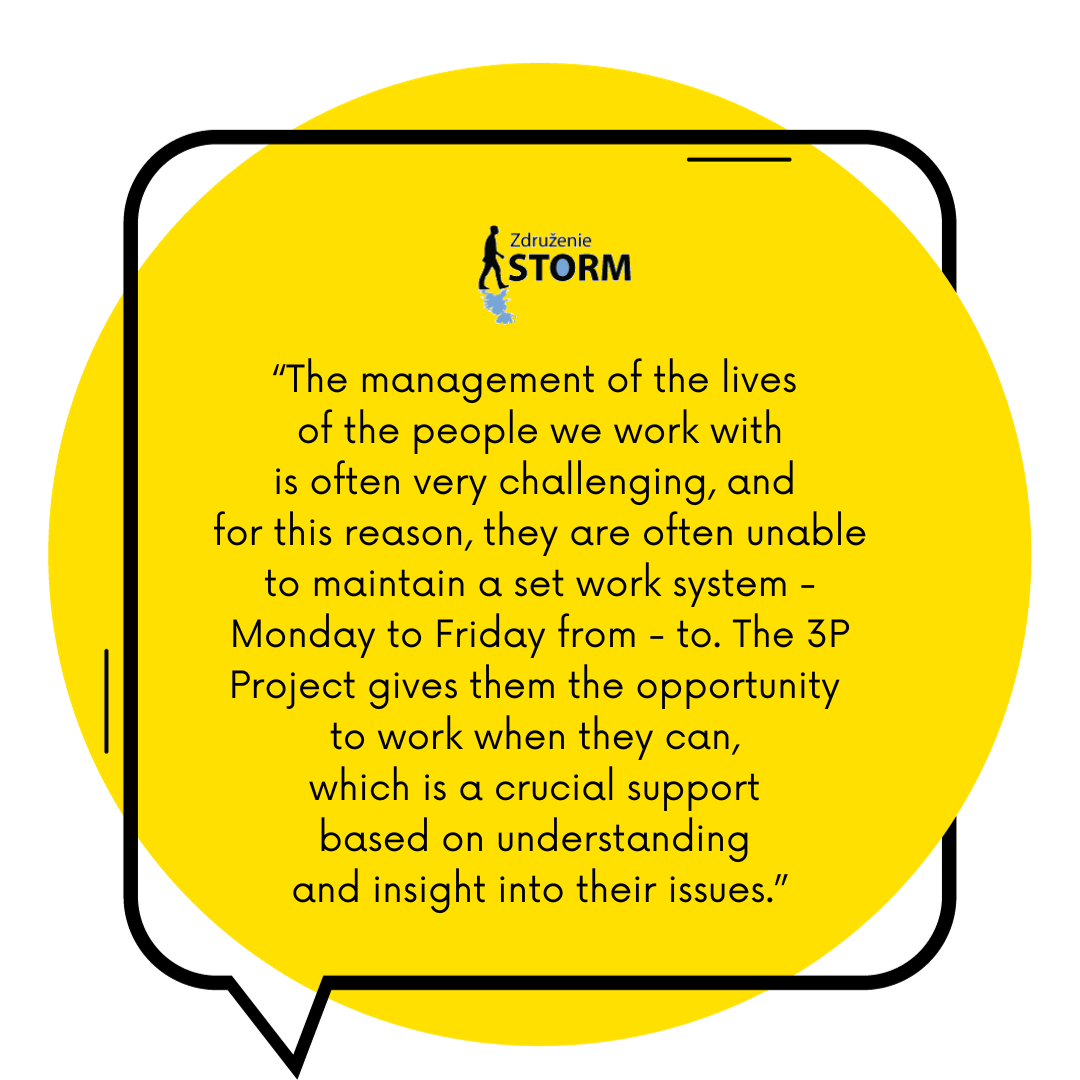
Among other possibilities is the opportunity to participate in the operation of the contact center – people can actively work as material handlers and distributors, prepare materials for distribution, and more. Through their work in the center’s vicinity, they contribute to destigmatizing the community.
People participating in the project are, through work and engagement, led to take responsibility for organizing their own time. Social assistance services aimed at achieving a goal (document processing, food shopping, mobile phone credits, etc.) are structured so that the time of the meeting is agreed upon with the person requesting assistance. If the person does not show up for the meeting within 15 minutes of the agreed time, the social assistance is not provided, and the goal is not met for that moment.
A fundamental aspect of the project is the opportunity to feel accepted, acknowledged, and, above all, “normal” for a brief moment.
By “normal,” we mean a person who is socialized and integrated into societal behavioral systems that are generally accepted as correct. The individuals we work with deviate from these patterns to some extent, but they intensely desire acceptance and acknowledgment despite these deviations. In the contact center environment, actively engaged in the work process, they have the opportunity to experience these feelings, which influences their self-esteem in terms of empowering positive lifestyle changes.
How has your project evolved after the conclusion of support from the Active Citizens Fund – Slovakia program?
After the support from the ACF – Slovakia program ended, we managed to sustain the project until today. From our perspective, this is the most significant success because several factors did not appear to be supportive. A colleague who worked as the project coordinator during the support period ended her collaboration with the association for financial reasons. Her responsibilities were divided among multiple employees, which required a lot of effort to coordinate activities. We successfully handled this transition.
We responded to the needs of the city and the location where the contact center is situated (in the basement of a polyclinic). We often hear that a larger amount of waste is generated on the premises due to the visitors of the contact center. As part of the 3P project, we aim to address the stigmatization of the people we work with at the center by allowing them to work outside in the polyclinic area. For several months, we have been performing outdoor cleaning activities. In this way, we strive to eliminate the stigma against these individuals and highlight them as equal members of society who contribute to positive changes.
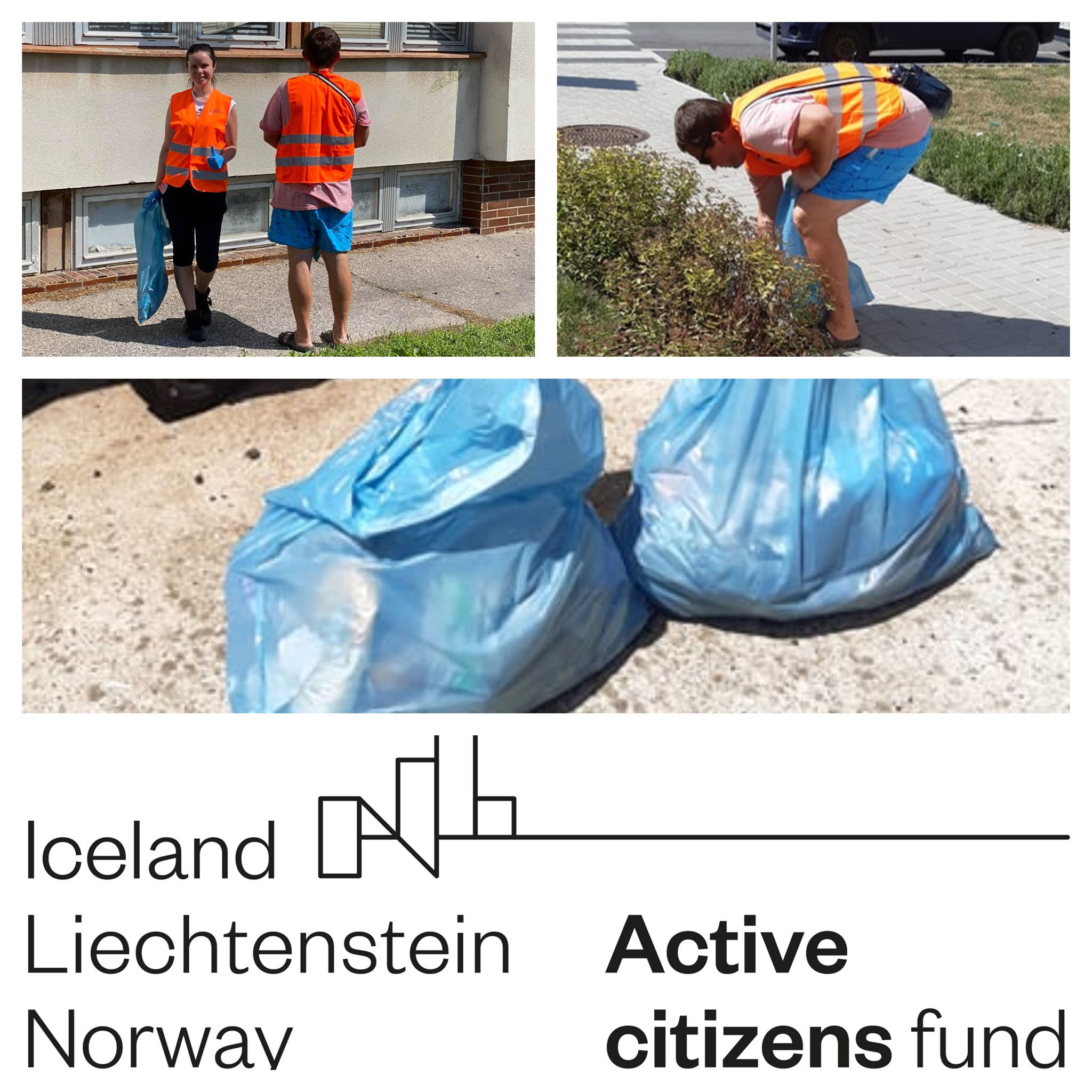
Source: STORM Association, work around the Zóna Center, Zóna Center clients.
During the winter months, we faced challenging times because many people were working off sums they needed to pay their rent at our center. This significantly impacted our budget, and for this reason, after several brainstorming sessions and considerations, we decided to limit the number of people, later the days, and even later the hours of work. This was necessary to maintain continuity. We relaxed these limitations during the summer months.
We also considered hiring someone to take over the role of the project coordinator who had resigned. After this experience, we have a clearer idea of how the project could be managed toward the creation of a social enterprise. However, we have not found the resources for such development.
We also looked for opportunities to facilitate employment for the people we work with, which they could carry out in the contact center and be funded by another entity. However, after thorough market research, we did not come across such job offers.
In the future, if we manage to gain access to sufficient support resources, we see the potential for development in involving a suitable and capable manager in the project. This manager could approach various entities offering work agreements, communicate the capabilities and setting of the people and the project, and strive to secure suitable work placements in line with the project for those interested.
What results have you achieved thanks to the project?
Despite the described challenges, we have managed to sustain the project to this day.
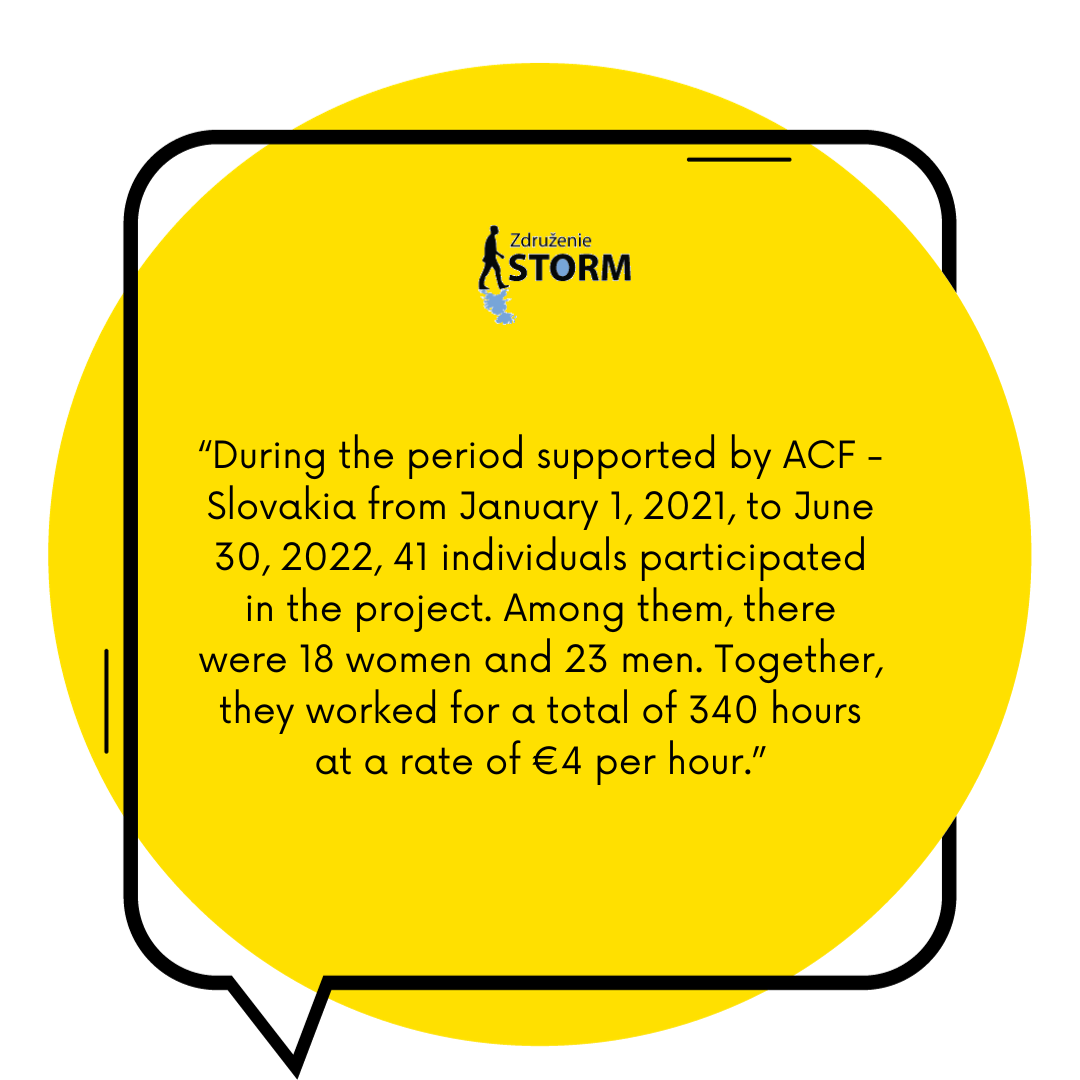
They earned a total of €1360 and used social assistance for various expenses, including medical treatment (€92), ID card fees (€91.50), accommodation (€398), and food purchases (€345.88). The remaining €432.62 was allocated for expenses such as mobile phone credit, clothing, transportation to government offices, and other needs.
After the end of the support period, when the project has been managed independently up to the current date (October 1, 2023), three new clients joined the project, in addition to those who were already involved. From July 1, 2022, to October 1, 2023, they collectively worked for 294 hours at a rate of €4 per hour.
They earned a total of €1176 and used social assistance for expenses such as accommodation (€279.50), food purchases (€387.83), and child support (€84). The remaining €424.67 was allocated for expenses like mobile phone credit, clothing, transportation to government offices, payments for items that were purchased and offered within the ZÓNA shop in exchange for the earned money. Here, they could purchase recycled mobile phones, chargers, laptops, or personal hygiene and toiletry products at significant discounts, as these were donated or recycled items.
We have maintained the project independently according to the data summary provided in nearly the same numbers as when we carried it out with the support of ACF – Slovakia, which we consider a success. This success is also attributed to the excellent cooperation with the Trnava Self-Governing Region, without which we would not have achieved it, as well as the well-structured program during the support period by ACF-Slovakia.
Have you been able to achieve the goals you set at the beginning of the project?
Based on the statistics described above, we can confidently state that we have more than succeeded in achieving the goals we set. I also want to emphasize that we have not been stuck in a state of goal fulfillment. As is customary within our association, we have engaged in brainstorming, research, and planning without resources. It is through this approach that we have developed detailed development plans for the project, in case we are able to secure support resources for this activity.
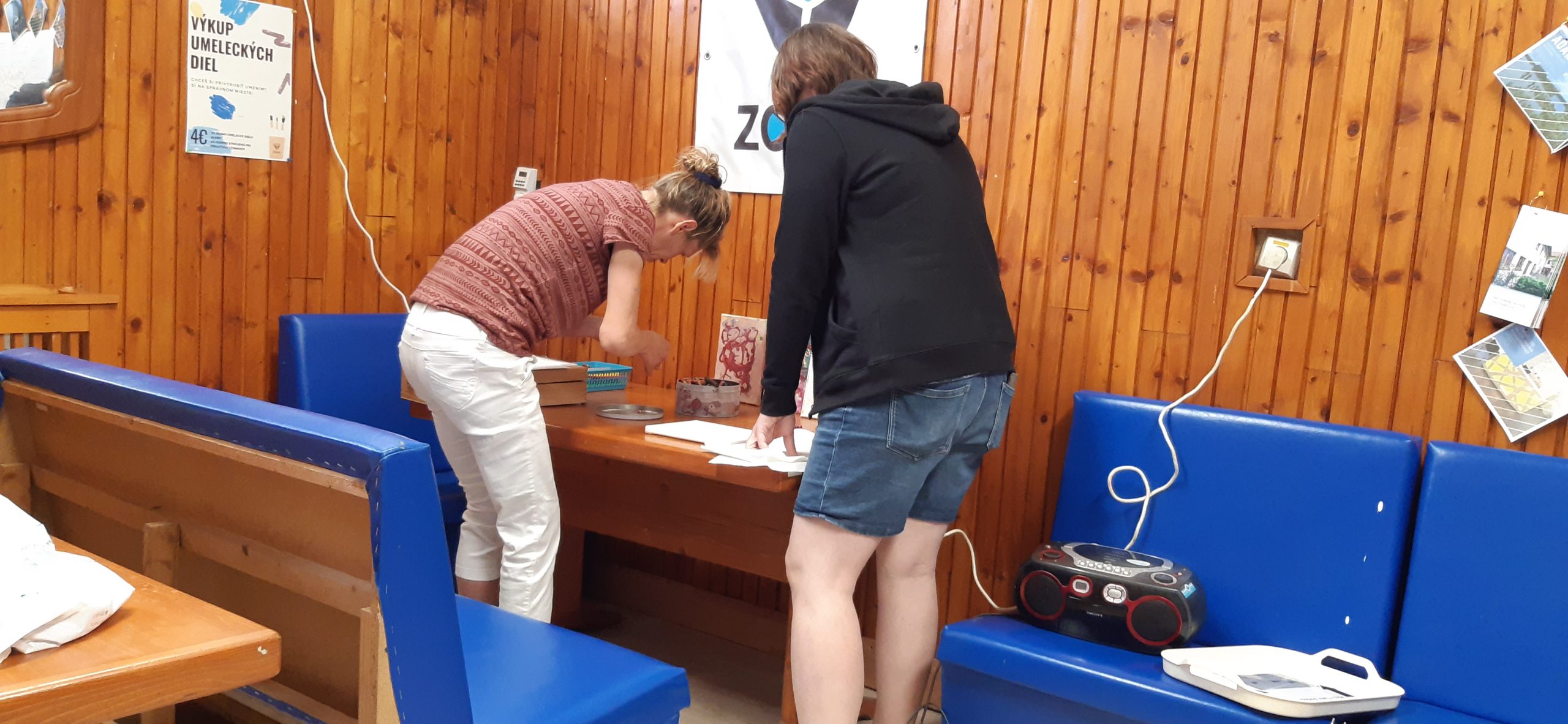
Source: STORM Association, work of a client at the Zóna Centre.
What achievements have you attained thanks to the project and the support of the Active Citizens Fund – Slovakia?
What was the project’s impact on the target groups and the community?
In order to avoid forming sentences without the direct involvement of the people for whom this project is intended, we asked them directly how they perceive what we call “tripéčko.” Here are two responses on behalf of others:
In my opinion, the project is good. It’s worth continuing. – Lalino
It’s a very good thing; some people don’t realize what an advantage it is. I participate because you help. I use ‘tripéčko’ for food and mobile credit. – Ivan”
What experiences has your organization gained from the implemented project?
The support program has given us the opportunity to truly experience and understand what we often discussed in public lectures at schools or public presentations. We were able to statistically capture the fact that it is important to create conditions for the people we work with to integrate into the workforce. The labor market in our conditions is quite inflexible and rigid. There are not many opportunities, and there are essentially very few legal options for someone who does not conform to the systematic scheduling of a typical workday. These individuals often form groups that are excluded from the labor market, which significantly jeopardizes their social situation and frequently leads to social exclusion that deepens into generational poverty over time. We see this all around us; it is the reality of our time.
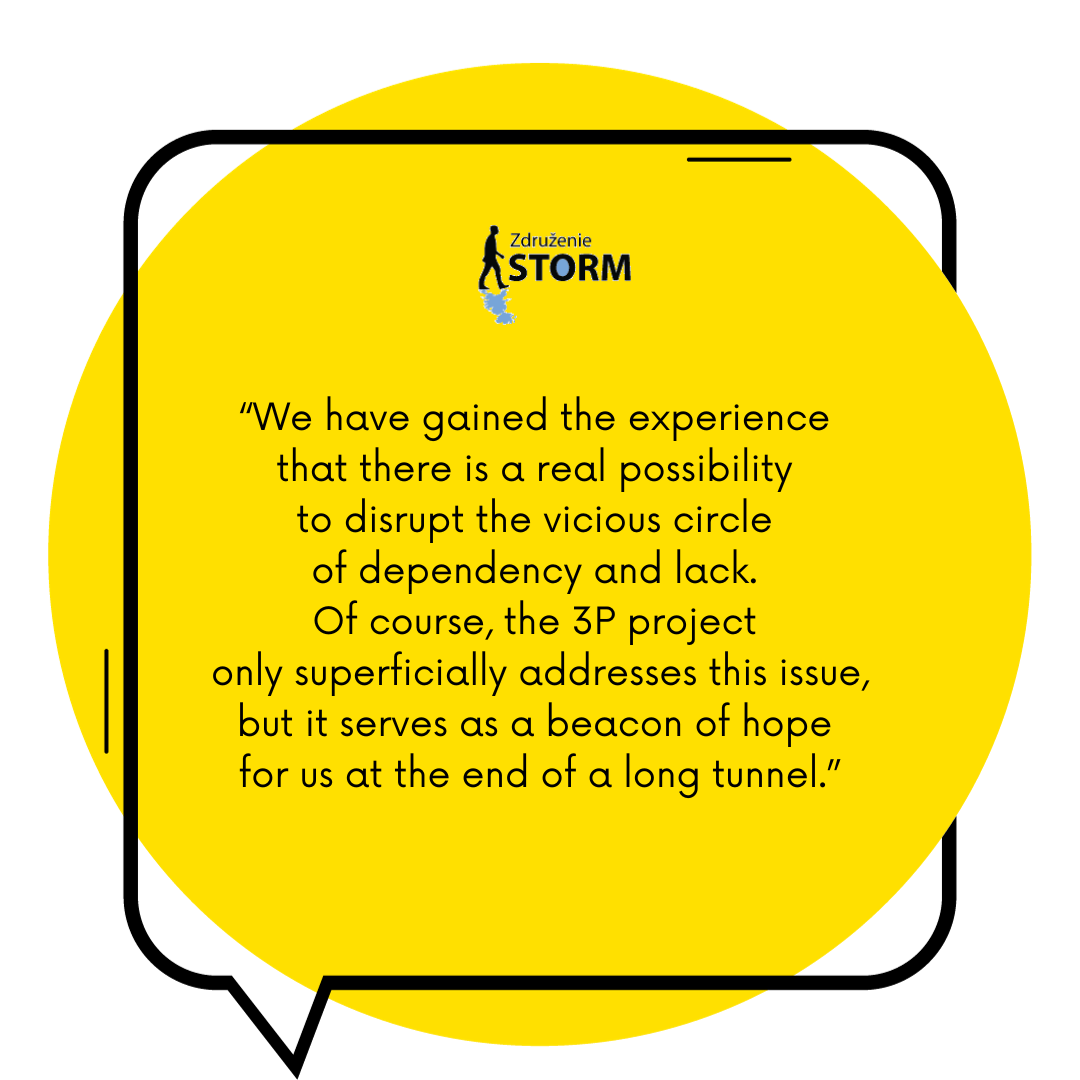
How do you assess the collaboration within the Active Citizens Fund – Slovakia program?
For these reasons, we consider our collaboration with ACF – Slovakia to be very significant. With the support they provided to our association, it was possible to address several long-unmet needs of the people we work with. They also involved our association’s workers in certain managerial and labor-related processes, significantly contributing to our professional growth.
In conclusion, I would like to once again focus primarily on the people we work with. It is important to realize that more significant changes to the status quo are not achieved through texts and articles in professional literature, but mainly through determined and strategic battles against windmills. The discourse is filled with stereotypical statements and policies based on myths that a person who uses illegal drugs is responsible for their situation and should suffer as much as possible because they can quit at any time and become one of us “normal” people. Such thinking and approaches have led us to various types of excluded communities. In our case, to the excluded communities of drug users. Such thinking and actions are in direct contradiction with a humanistic view of the world and humanity.
The people we work with are also skilled craftsmen, capable workers, sensitive and vulnerable individuals who also need their space for living.
We have also produced a video about the 3P project – work, assistance, support as part of the Active Citizens Fund – Slovakia program, which you can watch here:
